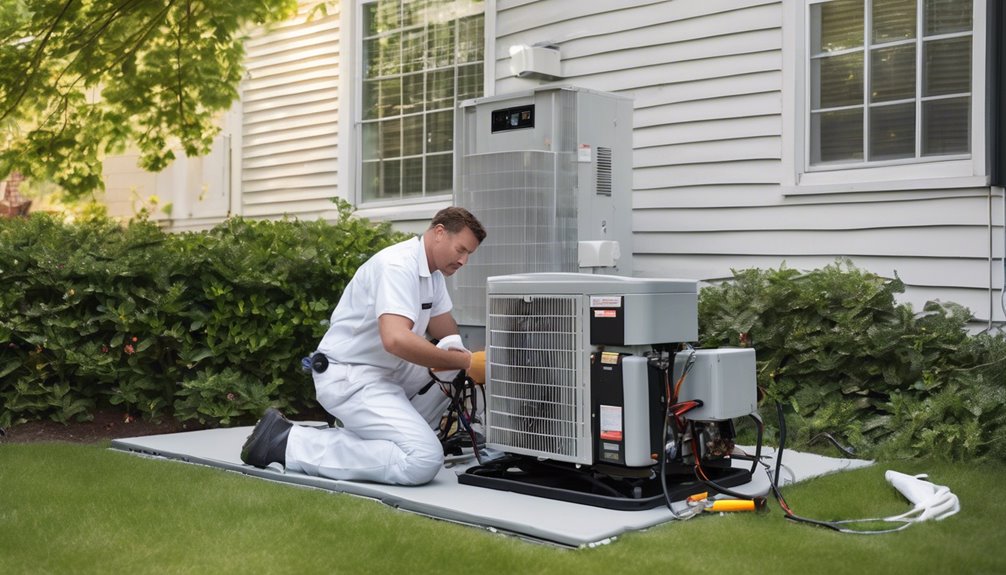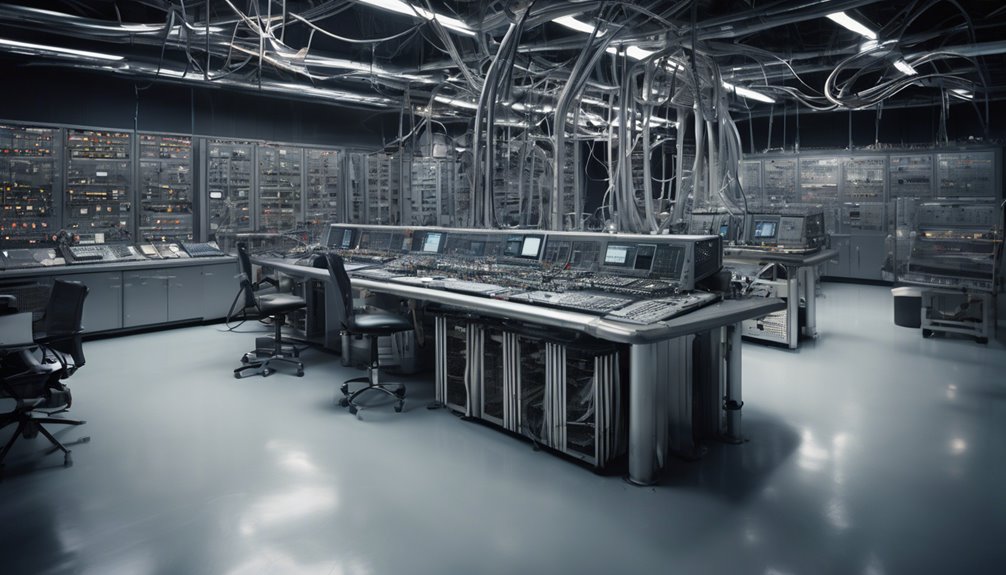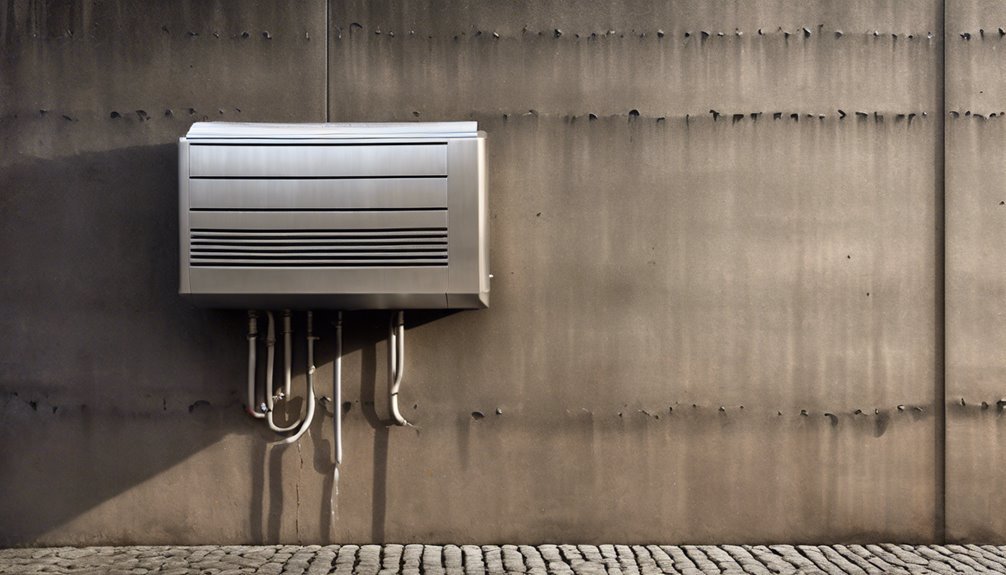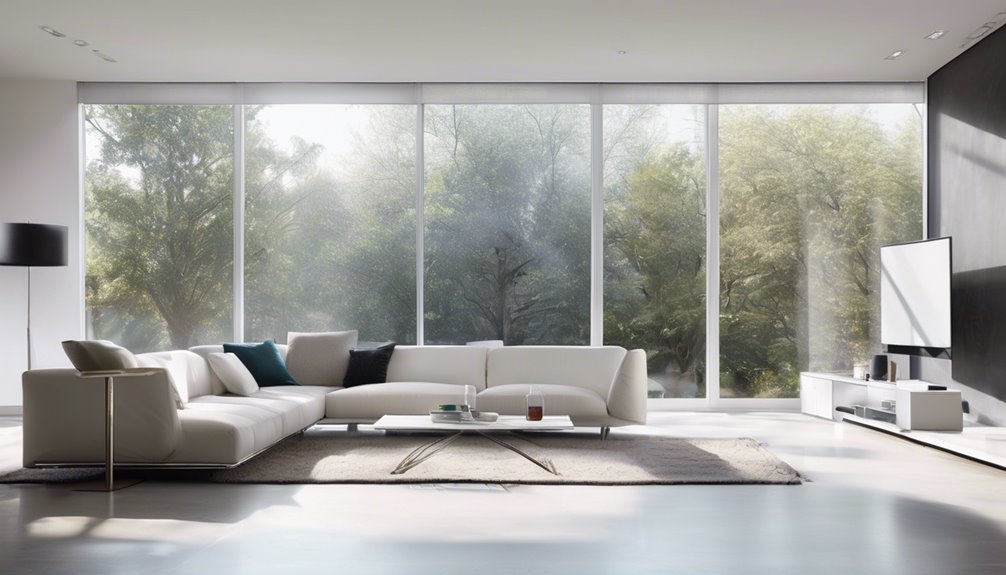With a well-maintained air conditioning system, you can enjoy up to 40% savings on your energy bills and extend the lifespan of your AC unit by up to 5 years. To achieve this, it's essential to identify and address common AC issues, such as air leaks, thermostat problems, and dirty air filters. Regular maintenance can help prevent these problems, ensuring your AC runs efficiently and effectively. By investing time and effort into maintaining your AC, you'll not only save money but also breathe easier knowing your system is running smoothly – and there's more to learn about optimizing your residential AC services.
Key Takeaways
- Regular maintenance is crucial to extend the lifespan of your residential AC system, reduce energy bills, and prevent unexpected breakdowns.
- Proper system sizing and installation ensure the AC meets your home's cooling needs, and a smart thermostat optimizes energy consumption.
- Dirty air filters, coil issues, and thermostat problems are common AC issues that can be resolved with routine maintenance and cleaning.
- Neglecting AC maintenance leads to inefficient performance, higher energy bills, and a shorter system lifespan, making regular tune-ups essential.
- A professional residential AC service can diagnose and fix issues, provide maintenance, and recommend energy-efficient solutions tailored to your home's unique needs.
Common AC Problems and Solutions
When your air conditioner breaks down on a sweltering summer day, it can be a nightmare.
You're left sweating and searching for a solution. One common issue is air leaks, which can cause your AC to work inefficiently and increase your energy bills.
Check for gaps around windows, doors, and ducts, and seal them to prevent cooled air from escaping.
Another problem is thermostat issues, which can prevent your AC from turning on or functioning properly.
Make sure your thermostat is set correctly and the batteries are fresh.
If you're still having trouble, it may be time to call a professional to diagnose and fix the issue.
Benefits of Regular Maintenance
By investing in regular maintenance, you'll get to enjoy a longer-lasting AC system, reduced energy bills, and fewer unexpected breakdowns.
This proactive approach helps prevent minor issues from escalating into costly repairs. With regular tune-ups, you'll be able to breathe easy, knowing your AC is running efficiently and effectively.
Extended System Lifespan
Regular maintenance plays a crucial role in extending the lifespan of your residential air conditioning system, allowing you to reap the benefits of a longer-lasting investment.
By keeping your system well-maintained, you can prevent premature wear and tear on system components, which can lead to costly repairs or even replacement.
Regular maintenance also helps maintain good air quality by removing dirt, dust, and other debris that can accumulate in your system.
This not only improves the air you breathe but also helps your system run more efficiently.
Some benefits of regular maintenance include:
- Reduced risk of system failure
- Improved system performance
- Extended system lifespan
- Identification of potential issues before they become major problems
Reduced Energy Consumption
Your residential air conditioning system consumes a significant amount of energy, and inefficient operation can lead to higher utility bills and a larger carbon footprint.
Regular maintenance helps ensure your system runs efficiently, reducing energy consumption and saving you money. By optimizing your system's performance, you can lower your energy bills and minimize your environmental impact.
Installing smart thermostats and dividing your home into cooling zones can also help you save energy. Smart thermostats allow you to control the temperature remotely and learn your schedule to optimize cooling.
Cooling zones enable you to cool only the areas of your home that need it, reducing energy waste. By taking these steps, you can enjoy a more comfortable home while reducing your energy consumption.
Fewer Breakdowns Occur
You've already taken steps to reduce your energy consumption, now it's time to think about the reliability of your residential air conditioning system.
Regular maintenance is key to ensuring your AC runs smoothly and efficiently.
With routine system checks, you can identify and address potential issues before they become major problems.
This means fewer breakdowns, which translates to less frustration and expense for you.
- Regular maintenance helps detect and fix minor issues before they escalate
- Tech expertise ensures that repairs are done correctly and efficiently
- Fewer breakdowns mean less downtime and inconvenience for you
- Preventative maintenance extends the lifespan of your AC system
Choosing the Right AC System for Your Home
When it comes to selecting an air conditioning system, homeowners often face a daunting task. You need to consider various factors to ensure you get the right one for your home. System sizing is crucial, as an oversized or undersized system can lead to inefficiency and increased energy bills. Your home layout also plays a significant role, as it determines the airflow and cooling requirements.
| Factors to Consider | Description |
|---|---|
| System Sizing | Ensure the system is sized correctly for your home's cooling needs |
| Home Layout | Consider the layout to determine airflow and cooling requirements |
| Number of Windows | More windows mean more heat gain, requiring a larger system |
| Insulation | Proper insulation reduces cooling requirements |
| Ductwork | Ensure ducts are properly sized and insulated for efficient airflow |
Energy Efficiency and Cost Savings
Energy efficiency is a top priority for homeowners looking to reduce their environmental footprint and save on utility bills.
You can achieve this by investing in a residential AC system that's designed to provide optimal cooling while minimizing energy consumption.
- Install a smart thermostat that learns your schedule and preferences to optimize cooling and heating.
- Implement zoned cooling, which allows you to cool specific areas of your home instead of the entire house.
- Ensure your AC system is properly sized for your home to avoid wasting energy.
- Regularly maintain your AC system to prevent breakdowns and reduce energy consumption.
Repair vs. Replacement: What to Consider
When your air conditioner breaks down, you're faced with a tough decision: repair or replace?
You'll need to consider the age of your unit, as an older model might be nearing the end of its lifespan. You'll also want to weigh the cost of repairs against the potential benefits of upgrading to a more energy-efficient model.
Age of the Unit
The age of your residential air conditioning unit is a significant factor in determining whether to repair or replace it.
If you're unsure about the unit's history, a system inspection can provide valuable insight. This inspection will help you understand the unit's current condition and identify any potential issues.
When considering the age of your unit, keep the following points in mind:
- If your unit is less than 10 years old, repair might be the best option.
- If it's between 10-15 years old, weigh the cost of repairs against the cost of replacement.
- If your unit is over 15 years old, replacement is likely the most cost-effective option.
- Consider the unit's maintenance history and any existing warranties or guarantees.
Cost of Repairs
Your wallet takes a hit whenever your air conditioning unit breaks down, and the cost of repairs is a crucial factor in deciding whether to fix it or replace it.
You'll need to consider diagnostic fees, which can range from $50 to $150, depending on the complexity of the issue.
Once the problem is identified, you'll receive repair quotes from licensed technicians. These quotes will vary depending on the type and extent of the repair.
Be prepared to pay anywhere from a few hundred to several thousand dollars, depending on the severity of the issue. Weigh these costs against the age and condition of your unit to make an informed decision about whether to repair or replace it.
Energy Efficiency
Prolonging the life of your air conditioning unit can have a significant impact on your energy bills and environmental footprint.
By keeping your AC in good condition, you'll not only save money but also reduce your carbon footprint, contributing to a more sustainable future and green living.
When deciding between repair and replacement, consider the following factors:
- The age and condition of your current unit
- The cost of repairs versus replacement
- The energy efficiency of your current unit compared to new models
- The potential long-term savings of a new, energy-efficient unit
Preventative Measures for Optimal Performance
Regular tune-ups and maintenance are key to getting the most out of your residential air conditioning system.
You can't afford to neglect your AC's upkeep, or you'll end up with inefficient performance and higher energy bills. To prevent this, you should regularly check and replace your air filter.
A dirty air filter can increase your energy consumption and reduce airflow. Additionally, coil cleaning is crucial to ensure your AC's condenser coils are free from dirt and debris.
Clean coils improve airflow and reduce energy consumption. By taking these preventative measures, you'll enjoy optimal performance, reduced energy costs, and a longer lifespan for your AC system.
Frequently Asked Questions
Can I Install a Residential AC System Myself?
You can try installing a system yourself, but be prepared to face DIY challenges like complex electrical and refrigerant handling, which might outweigh any installation costs you're trying to save, and potentially void the warranty.
How Often Should I Clean My AC Air Filters?
Just like a painter can't create a masterpiece with a clogged brush, your AC can't breathe with dirty filters. You should clean them every 1-2 months to maintain optimal filter quality and ensure your system runs smoothly, saving you energy and money in the long run.
Are Smart Thermostats Compatible With All AC Systems?
When you're shopping for a smart thermostat, you'll find that most brands, like Nest or Ecobee, are compatible with many systems, but it's essential to check compatibility before buying, as it can affect energy efficiency and optimal performance.
Do AC Systems Need to Be Covered in Winter?
"An ounce of prevention is worth a pound of cure." You're wise to wonder if your AC system needs winter protection. Yes, covering it can prevent frost damage, which can lead to costly repairs or even system failure when you need it most.
Can I Use a Dehumidifier With My Residential AC System?
You can use a dehumidifier with your cooling system to enhance humidity control and energy efficiency. By removing excess moisture, your system works more efficiently, saving you money, and creating a more comfortable living space.
Conclusion
As you've learned, staying cool and comfortable in your home depends on a well-maintained AC system. Coincidentally, the same measures that keep your AC running smoothly also save you money on energy bills. By addressing common problems, choosing the right system, and performing regular maintenance, you'll avoid costly repairs and replacements. It's no coincidence that a well-cared-for AC system will provide years of reliable service, keeping you cool and comfortable all summer long.



